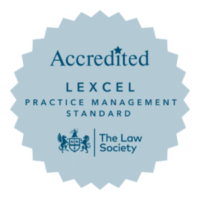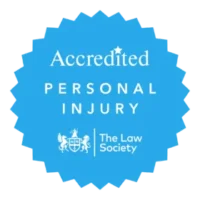A Personal Injury Panic at the Disco: Festival and Concert Injuries
02nd Aug 2024
With festival season in full swing and already two of the largest UK festivals having drawn to a close (Download and Glastonbury), there are plenty of us who would have failed to notice that Health and Safety is in place (usually) everywhere we go at festivals and concerts.
The organisers and venue owners have an obligation to keep you safe from harm.
Where there are high volumes of people, there are undoubtedly going to be accidents that occur. Slipping up on a bottle that another reveller has just dropped is very different to having stage lighting equipment fall on you, and there is a wide range of negligence ‘grey area’ too.
The rule of thumb for a successful compensation is that there must have been an act of negligence (something that was done (for example, letting the front stage pen become overcrowded, leading to people getting crushed), or something that was not done (no inspection and cleaning procedure and action for spills and broken glass) which in turn caused injury and loss.
Being drunk makes things more complex
If you have enjoyed a few too many and you decide to put yourself in harms way, it may not totally eradicate your right to claim, however the Defendant may argue that you were partly to blame for the subsequent injury and loss suffered.
This is called contributory negligence. If the Defendant successfully argues this, compensation will be reduced by either an agreed percentage between you and the Defendant side (on our advice and via us), or if your claim goes to trial a Judge may apportion a percentage of contributory negligence.
If you are in doubt you should get in touch. It won’t cost you a penny.
If you have been injured at an event, a festival or a concert and it seems like there was something that could have been done to prevent it, then it is worth you getting in touch.
We provide free no-obligation advice when you come to us. So that you can better understand your legal position. We have seen it all! We prefer you ask the question rather than allowing a claim to put things right to expire.
Try not to put it off, you do not have forever to bring a claim
Limitation for adults who are 18 years old and over have 3 years from the date of the accident to either settle their claim or issue to court. It is always better to ask for legal advice sooner rather than later.
Why it is great news for the NHS for you to claim if you have been injured due to negligence.
Compensation culture and injury claims have had some bad wrap over the years. But the tide is changing with car insurance fees spiking despite drastic reductions in personal injury road traffic accident claims. This has shown that Personal Injury has never been the cause of insurance costs continuously rising.
We continue to fight the stigma for our injured clients. It is little known that making a claim is great for the NHS!
Not only are the Defendant Insurers required to pay the NHS back for hospital treatment related to injuries suffered, but with a claim you can also access private rehabilitation treatment. This means you free up NHS resources and reduce their spend, as well as having fast-tracked treatment from one of our many incredible private rehabilitation treatment practitioners.
We provide quality legal advice in a way that suits you
Our team are registered practitioners with the Association of Personal Injury Lawyers, with Law Society Accreditation and LEXCEL accreditation. All of these show that your claim is in safe hands with us.
We set ourselves apart from larger firms by providing the personal touch and care. Our personal service and an assigned Lawyer or Solicitor manage your claim and look after you from the start to the end.
Contact us by telephone, email, via our website. We provide free advice and assessment of whether you have a claim to pursue. Find out how a claim can open up a world of rehabilitation and compensation possibilities.
Related news
Articles you may find useful
Like this article? Sign up for our regular newsletters






